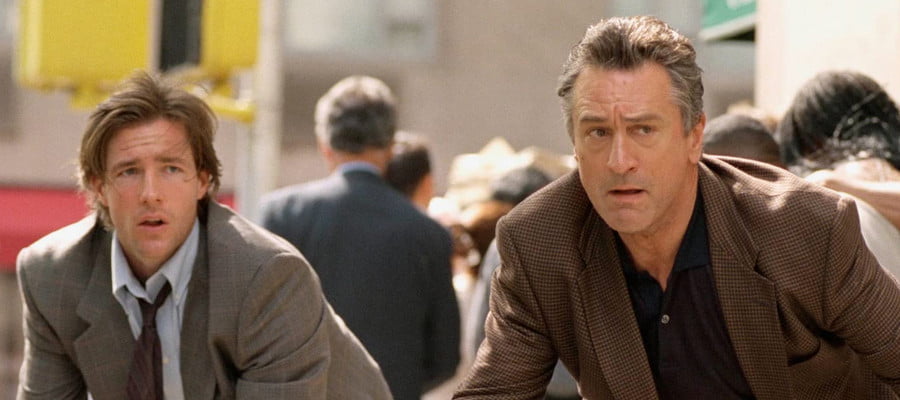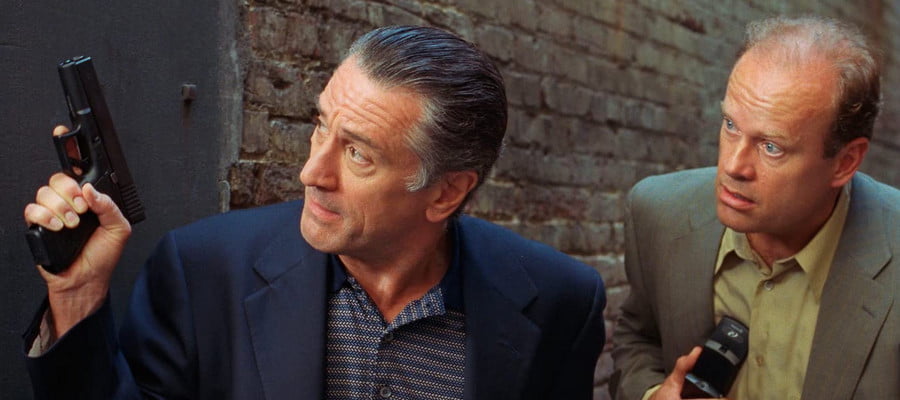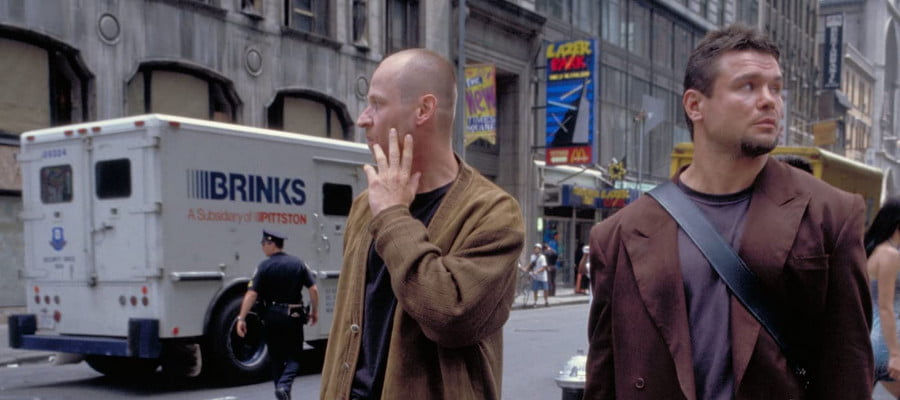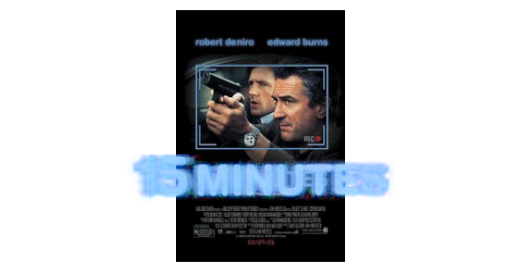Way back when I wrote about The Beginner’s Guide, I wound up talking about a movie called S1M0N3. The basics of that article are that some gamers seemed to be fooled into believing the fictional story of a developer stealing work and putting it up on the internet for sale was a real thing, just as in the movie S1M0N3 people believed that a movie about a fake fictional digital actress was made with a real fictional digital actress. It still stands out to me as an example of the way that modern, immediate anxieties about our relationship to technology are not, in fact, new at all.
In 2001, another movie came out that had a similar vibe to it, a movie about a fear of the changing culture of the now in the light of emergent technology. The fear was about what people would do in a world where everyone had access to a camera, about what a culture of news of spectacle would do, and the assumptions we make about people’s ability to control and express themselves. The movie was called 15 Minutes.
It’s weird that this movie is a movie when you look at it. Some criminals do some crimes, with a camcorder, and then one gets the idea of filming the crimes, as either documentary or something. Then they hit on the idea that film of them doing crimes would be the ultimate defense for when they get arrested, proving that they weren’t mentally fit to stand trial. They kill some people, they go to trial, there’s a hostage situation at the end and a lawyer gets punched.
The characters have names that slither out of the memory almost immediately. The villains are Eastern European Organised Crimeboys who are bereft of their normal infrastructure, the cops are an Old Cop and a Young Cop, and one of them is played by De Niro, so you know, you probably have an assumption about how that’s going to go. Remarkably, De Niro dies at the end of the first act – it’s the murder of a cop that convinces our crimeboys that they need to make sure they have some defense for when they are inevitably caught for their crimes.
That’s sort of it, though. The movie is about a crime spree, that’s recorded on tape, and the way that the criminals release that tape to the media to control the understanding of who they are and what that means, and then the ensuing complication that presents for the at-the-time, 2001 era courts.

The movie owes its title to the Andy Warhol quote that ‘in the future, everyone will be world-famous for 15 minutes.’ This is, of course, not a quote. It’s from a pamphlet exhibiting Warhol’s work, which is not the same thing. What’s more and if you clicked that link, you’re going to know I’m going to mention it, it’s the same general thing as the one-hit wonder, or the nine days’ wonder. The idea is pretty simple, that attention is available but also fleeting. Nothing endures, certainly not in popular media presentation, and therefore anything you make for an audience is something that will pass away.
Or maybe it’s not, maybe it’s about how the very hierarchy of attention we lived under in the 1960s was fundamentally being upended by art movements that were uh, at the time, being promoted and driven by the CIA propaganda edifice. Wikipedia doesn’t have an article about the Fairfield group though, so no link for you.
It’s a really interpretable phrase, and I’m not sure about how it gets deployed like its meaning is widely understood. Here, in this movie, it seems to want to be about how the criminals are only acting because they’re getting attention, and by giving them attention, we are, in a way, as an audience, supporting and encouraging these criminals in their dreadful spree of killing sex workers and cops.

When I was a kid, it was actually considered a sort of self-debunking idea that films of actual crimes would ever be made. Back when recording video was hard, you wouldn’t be setting up a light stage around an act of theft or violence. No, you wouldn’t record footage of your crimes, unless that crime was negligence occasioning the death of dozens of extras or giving your movie starts cancer. But nobody doing a crime, like a crime crime would ever record them, right?
It’s an interesting arc to have charted in my childhood life because when I was younger, in the cult, we’d make a big deal about how criminals would use camcorders to record video of themselves killing people and doing terrible things. This was then dismissed by the smarter kids who asserted nobody would make proof of themselves doing anything wrong, because we kinda thought like Encyclopedia Brown books.
As I got older though it turns out that yeah, this stuff happened, and it happened in a bunch of different, evolving ways, which followed the technology available. Tape recordings of crimes, followed by video recordings and then, as home security cameras became widespread, more kinds of filmed crime happened. Now we’re at a point where people have been doxxed on stream, becoming victims of crime, and the police actively harrass people who film them.

I think as far as a movie itself goes, 15 minutes is a pretty good poster. It’s not unremarkable, there’s clearly an intention to have an idea at the heart of it, but it’s the kind of remarkable where you mention it and then forget about it ten minutes later. The decision to kill off the biggest star in the movie at the end of the first act is pretty exciting and shocking, and the idea at the heart of it, back in 2001, was pretty interesting. Y’know, what if video evidence but too much.
Kinda a wild thing to consider there was this fear, at one point, of a device that made evidence and accountability, because criminals would use proof to escape punishment. That the justice system was so soft and gentle on people who had been filmed killing people that they could murder someone on camera, and this would convince a jury they shouldn’t be punished for it.
If you wanna do that, you gotta be a cop, you see.
